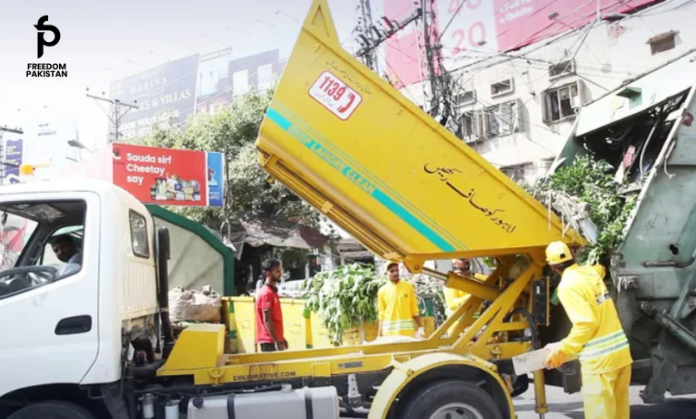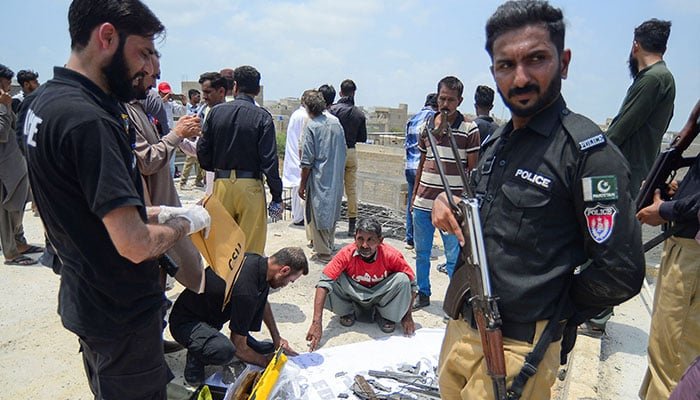The Punjab government has announced a new measure to maintain cleaner and healthier neighbourhoods across the province. According to a recent notification, the authorities will collect a garbage tax of up to Rs. 5,000 per month from households, businesses and industries. This initiative aims to cover waste collection and disposal costs while making waste management more efficient and sustainable.
Population Impact
-
An estimated 100 million people live in Punjab, making waste generation and its management a critical issue.
-
Cities like Lahore and Multan have seen waste generation rise by about 5–7% annually due to increasing urbanization.
Waste Generation in Punjab
-
Punjab produces roughly 15,000–18,000 tons of waste per day across its cities and rural areas.
-
Major urban centers like Lahore, Faisalabad, and Rawalpindi generate about 50–60% of this total waste.
Waste Management Infrastructure
-
The Punjab government operates waste collection services in over 300 urban and rural areas.
-
The waste recycling rate in Punjab is estimated to be roughly 10–12% — well below global averages.
-
Punjab aims to raise its recycling rate to 25–30% by 2028 through this initiative.
New Garbage Tax Details
The tax range will vary from Rs. 100 to Rs. 5,000 per month, depending on the area and the quantity of waste generated. It applies to residential areas, commercial units, and industries. The government will categorize the charges based on the location and usage, making sure businesses and industries pay higher rates due to their larger waste generation.
This initiative aims to:
- Improve waste collection and disposal: The tax will support better waste management services across Punjab.
- Encourage recycling and waste reduction: By charging for waste generation, authorities hope people and businesses will adopt better waste practices.
- Make waste services sustainable: The revenue will fund equipment, staff salaries, and other operational expenses.
Garbage Tax Rates
-
Residential areas: Rs. 100–1,000 per month (depending on area and waste quantity)
-
Commercial spaces: Rs. 1,000–3,000 per month
-
Industrial units and large businesses: Rs. 3,000–5,000 per month
Impact on Residents and Businesses
Households in urban areas can expect monthly charges starting from Rs. 100. Commercial spaces like shops, restaurants, and factories will be charged higher amounts based on the quantity of waste they produce. This approach aims to create a “polluter pays” culture, making waste generators more responsible.
Criticism and Challenges
While the initiative is lauded for its environmental benefits, it has faced skepticism from the public. Critics argue that charging low-income residents may be unfair and burdensome. Small businesses are also worried about rising operational costs. Ensuring accountability and avoiding misuse of funds remain significant concerns.
Government’s Perspective
Government representatives have stated that this new tax will support waste disposal infrastructure and reduce environmental pollution. They have promised that the collected revenue will be used exclusively for waste management, equipment procurement, staff salaries, and expansion of services across rural and urban areas.
Government Targets
-
The Punjab Government aims to reduce landfill waste by 30% in the next 5 years.
-
New revenue from the tax will be used to buy waste trucks, bins, and recycling equipment, and to hire and train staff.
Public Reaction
Reactions on social media and in communities have been mixed. Environmental activists and NGOs have expressed cautious support, urging authorities to use the funds transparently. Meanwhile, residents have called for guarantees that the initiative will result in cleaner neighborhoods and better services.
Conclusion
The new garbage tax in Punjab is an ambitious step towards making waste management more sustainable and organized. Its success will depend largely on how well the government implements and monitors the initiative. If executed effectively, it can transform waste disposal practices across the province and contribute to a cleaner and healthier future.
You Can Also This
Freshly Built Underpass in Islamabad Cracks After 1st Monsoon Rain




